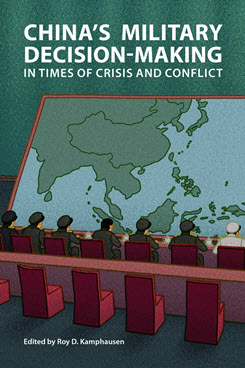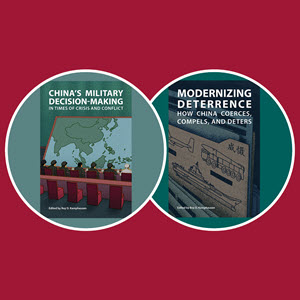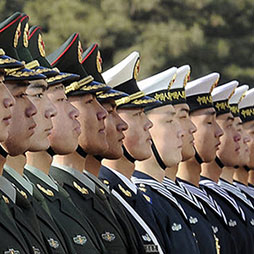The Implications of the PLA’s Nuclear Expansion and Modernization for China’s Crisis Behavior
This chapter assesses the potential drivers of China’s nuclear expansion and modernization, examines Chinese views of nuclear weapons and their utility in peacetime and crises, and explores the role of non-nuclear strategic capabilities.
EXECUTIVE SUMMARY
MAIN ARGUMENT
China is undergoing the most significant nuclear weapons expansion in its history. Chinese leaders have not publicly articulated a rationale or an end state, but these efforts appear to be driven by a perceived need to maintain a secure second-strike capability and bolster the country’s great-power status. A China with a larger and more secure nuclear deterrent will likely be less susceptible to U.S. nuclear threats and intimidation and more willing to initiate conventional conflict due to the perceived reduced risk of nuclear escalation. Deterring conflict will therefore be more influenced by the conventional balance of power at the local level. China may use its expanded nuclear arsenal to bolster its prestige, challenge U.S. extended deterrence commitments, and dissuade U.S. intervention in a crisis or conflict. China’s growing space and cyber capabilities, which are viewed as more usable weapons in a conflict, may interact with its nuclear capabilities in ways that create escalation risks.
POLICY IMPLICATIONS
- If U.S. decision-makers conclude that maintaining nuclear superiority is both valuable and achievable, then the U.S. might forgo strategic nuclear arms control in pursuit of a nuclear advantage.
- If U.S. policymakers conclude that China’s quest for a robust second-strike capability cannot be stopped and that mutual assured destruction would maintain strategic stability, then the U.S. should work to manage nuclear competition with China instead of attempting to offset its buildup.
- Given that China’s nuclear buildup lowers the escalation risks of conventional military conflict and increases the importance of the local conventional balance, the U.S. may need to invest more in regional conventional forces.
- U.S. recognition of mutual nuclear vulnerability with China might decrease the risks of nuclear escalation in a crisis or conventional conflict as well as the incentives for a nuclear arms race. However, it could also reduce allied confidence in U.S. security guarantees and might encourage Chinese military action at lower levels of violence.
Phillip C. Saunders is Director of the Center for the Study of Chinese Military Affairs at the Institute for National Strategic Studies at the U.S. National Defense University.
David C. Logan is Assistant Professor of Security Studies at the Fletcher School of Law and Diplomacy at Tufts University.
The views expressed are those of the authors and do not necessarily represent those of the National Defense University, U.S. Indo-Pacific Command, the Department of Defense, or the U.S. government.



 Assessing U.S.-China Deterrence Dynamics and Crisis Management
Assessing U.S.-China Deterrence Dynamics and Crisis Management
